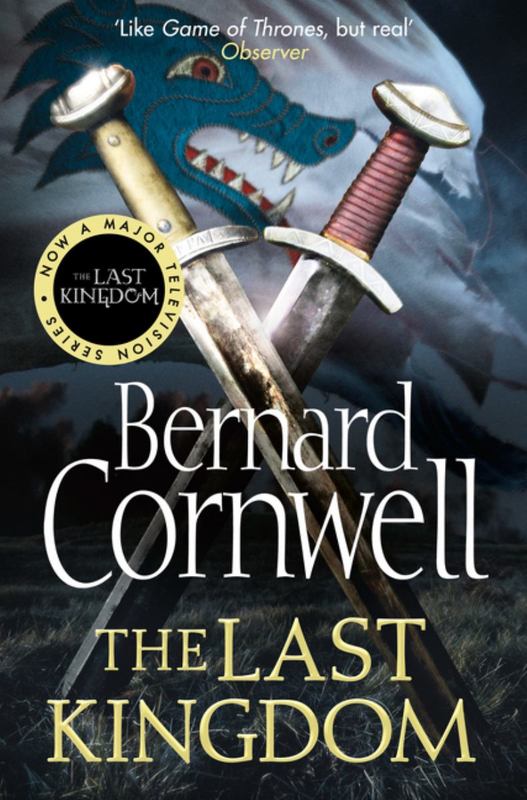The way I came across this book is a little unusual, but it’s a fine example of word of mouth. Earlier in the year, the chaps at the Brush and Boltgun were discussing a Dark Age game called Saga. I’d only ever heard of it, but was interested in trying something different so picked up a small Anglo-Dane force (see post about it here).
When I came to paint them, I wanted something relevant to watch, and I was pointed in the direction of the Last Kingdom TV series. I watched two series over the course of two weeks, then devoured the entirety of Vikings. Once finished, I was chatting to my brother about the TV series and he recommended the books, and I borrowed the first four from him. They did not disappoint.
The Last Kingdom is the first novel in The Saxon Stories, and starts with the main protagonist, Osbert, the nine year old, second son of Ealdorman Uhtred of Bebbanberg. When the Danes arrive in Northumberland Osbert’s life takes an interesting turn and he soon becomes Uhtred, and ends up raised by Danes. After further turmoil he is sworn to Albert, King of Wessex. While sworn to Alfred (the Great) he is tasked with protecting the coast of Wessex with a fleet of 12 ships, along with Leofric, who he becomes good friends with. Having been raised by Danes, and being sworn to the King, Uhtred finds himself in the unfortunate place of a man who isn’t trusted by either side in a war. As the main character, you can’t help but see Uhtred’s point of view, despite his often reckless decisions.
The first thing that struck me about the novel was how nice it was to read. Despite the setting being so utterly different from modern day life, I didn’t struggle with it in any way. Indeed, it was so good that I found myself wanting to read it more and more as I progressed through it’s pages. The description is magnificent and sets the scenes well, so that you really do feel like you’re there – be it creeping through the untouched lands, or stuck in a shield wall about to be cut down.
The second thing that struck me, was the characters, each noticeably different, each with their own quirks and personalities, so that they all felt full of life (and at times, death). Cornwell has done a superb job of intertwining both fictional and non-fictional characters together, and it makes you want to believe they’re real.
I didn’t know too much about the Dark Ages when I began reading them, but I’ve started to read a little more about it outside of historical fiction. It’s a fascinating time in the history of our country, and does make me somewhat thankful for the nicer things that we’re used to now. I also found the differences in religions, and how much that played in the Dark Ages, with the Danes, being described as pagans and heathens, worshipping the old gods, while Alfred was a devout Christian. It’s hard not to see the differences and intolerances of religions then almost mirroring the world today, but again, it’s made me read a little more into the older religions.
I’d definitely recommend this novel to anyone with even the vaguest historic interest, as it’s an effortless read full of great characters, some good, some bad, all with their own motivations, strengths and weaknesses. I found it difficult to put down, and on the days when I missed my train to work, it was more of a blessing than a curse.
If you’re looking for a new series of books to read, or even just want to try something different, give it a go, you won’t be disappointed.
